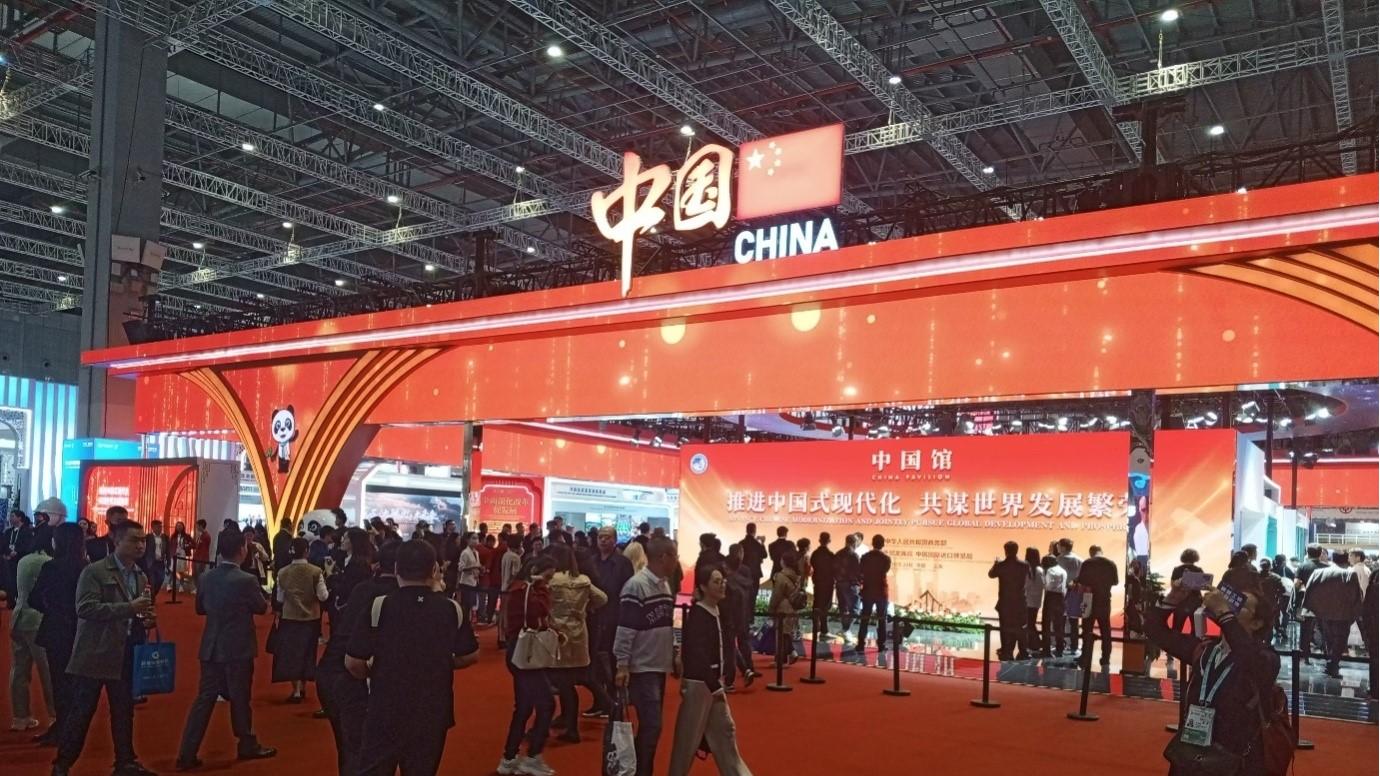Innovative business models: New momentum for foreign trade growth

Photo shows Sailvan Times' products. (Screenshot from sailvantimes.com)?
In the first half of 2024, Shenzhen-based cross-border e-commerce company Sailvan Times Co., Ltd. reported a revenue increase of 50.65 percent, reaching 4.17 billion yuan ($588 million). Zhang Denglian, vice president of the company, credits this growth to its use of big data to meet specific consumer needs.
"Through detailed analysis of overseas customers' sizing and fabric preferences, we've built a database of over 19,000 design patterns for custom clothing," said Zhang, highlighting how tailored data insights are driving product appeal and revenue growth.
To accommodate cross-border e-commerce's "small-batch, high-frequency" demands, Shenzhen Customs has enhanced efficiency by implementing integrated, digital parcel processing systems. This system enables "immediate clearance and on-site distribution," shortening shipping time and expanding the company's reach to over 180 countries, including North America and Europe.

Photo shows the Dishui Lake in the Lingang new area of the China (Shanghai) Pilot Free Trade Zone. (People's Daily Online/Ji Haixin)
In the first half of the year, cross-border e-commerce emerged as a key driver of China's foreign trade, with trade volume reaching 1.25 trillion yuan, a 13 percent increase year-on-year, comprising 5.9 percent of the country's total trade value. Of this, exports accounted for about 979.9 billion yuan, marking an 18.7 percent rise.
In June, China's Ministry of Commerce and several other departments released guidelines to expand cross-border e-commerce exports by promoting paperless filing for overseas warehouses and enhancing regulatory reforms to support the sector's high-quality development.
On Oct. 21, Guangzhou's Nansha Free Trade Zone automated assembly lines efficiently sorted returned cross-border e-commerce goods for resale. These products are re-shelved and, once repurchased by overseas consumers, bundled with new items and shipped from Guangzhou Baiyun International Airport.
To address the difficult "returns" problem in cross-border e-commerce, Guangzhou Customs introduced an export consolidation model in special supervision zones, allowing businesses to handle returns in Nansha. Here, returned items undergo unpacking, sorting, storage, and preparation for resale, smoothing the path for smooth re-export.
"Guangzhou Customs' export consolidation model significantly improves delivery efficiency for items from various sources, including overseas returns, domestically sourced products, and cross-border exports," said Huang Jinning, general manager of Pincheng Logistics. "This model has enabled us to process up to 120,000 e-commerce parcels per day."
According to Guangzhou Customs, this consolidation model can reduce logistics management costs by 30 percent. In the first three quarters, the model facilitated about 33.8 billion yuan in transactions, a fourfold increase year-on-year.
On Oct. 22, China launched its first duty guarantee insurance for cross-border e-commerce retail imports, simplifying tax obligations. Ningbo Jiannuo E-commerce Co., Ltd. was among the first to use the policy, securing a 500,000 yuan guarantee through insurance, which was then used to meet customs tax liabilities.
"Our company handles over 1,000 small packages daily, each requiring tax payments. Cash deposits previously tied up funds, but duty insurance has greatly eased our cash flow," explained Liu Ruiqiang, Jiannuo's operations manager. "The company completed the online insurance application, and the guarantee was approved on the same day."
Intern Han Yifan contributed to this story.
Photos
Related Stories
- China’s foreign trade edges up 5.2% in first 10 months, extending stable growth
- China’s trade group rebukes US, EU trade restrictive measures as they violate WTO rules
- China's trade with other BRICS countries rises
- EU urged to show sincerity as EC chief signals continuing talks
- Cross-border RMB use up over 20 pct in first eight months of 2024: report
- China Trade Week opens in Kenya with call for deepening commercial ties
- Protectionism on cross-border e-commerce will boomerang on US consumers
- East China's digital trade expo to be fully powered by green electricity
- China doubles subsidies to boost auto trade-ins
- Experts call for more efforts to bolster trade in services
Copyright © 2024 People's Daily Online. All Rights Reserved.









